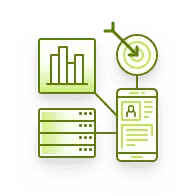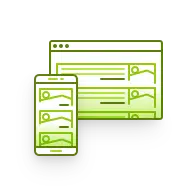Empower your sales reps to work smarter with field sales software
June 6, 2019 By Stacey Woods

It’s no secret that good time management is one of the highest requirements for succeeding in B2B sales. But what is a surprise is that today’s sales reps spend the majority of their time on activities other than sales with 64.8% of reps’ time currently spent on non-revenue-generating activities.
Let’s look at some of the challenges sales reps face out in the field and how field sales software can help
What are the key contributors to inefficient field sales?
1. Inconsistent sales processes
A successful sales process is based upon consistent messaging and procedures. There is always some variance between customers (not everyone is the same) but when you instill consistent sales activities, you produce consistent sales results. Random sales activities produce random results.
2. Lack of internal communication
Good communication is vital between sales reps and their managers, and different departments such as marketing and operations. Without it, it’s impossible to work smart.
3. Poor activity planning
As Benjamin Franklin famously said: ‘Fail to prepare, prepare to fail.’
4. Limited sales training
The modern sales rep needs many skills to be successful in the B2B world including prospecting, finance, negotiation, how to pitch, and how to create interest during a very short time frame. Without proper on-boarding and ongoing training, no sales rep has a chance of meeting their targets and improving over time.
5. Unrealistic targets
Obviously you want to encourage your sales reps to reach for the stars, but if you don’t balance that out with a good dose of common sense, regarding sales volume and customer visits, then the entire company could suffer.
With all these challenges ahead, how will sales software help?
1. Establish clear processes
As Harvard Business Review reports, sales reps are “the most effective in managing their sales pipelines if they have invested time in defining a credible, formalized sales process.”
A field sales software helps in adhering to established guidelines for example by enforcing certain business rules and enabling workflows to govern certain activities. Together with providing consistency, ensure your sales software is flexible enough to accommodate any tweaks per customers/account as all customers are different.
2. Establish goals, track and measure
Using a sales force automation tool enables managers to assign sales reps to territories and to customers, set sales goals, and monitor sales performance metrics using BI dashboards and reports.
This is also a way to recognize excellence within your sales team and reward accordingly – always a huge motivator.
3. Focus on high-impact activities
One of the main benefits of sales automation is how much time it saves your sales reps. Time previously spent on administrative and repetitive tasks can now be diverted towards more high-impact sales activities such as up-selling, cross-selling and building that all-important customer relationship. It also helps in prioritizing activities, so you can make sure a rep is visiting the right customer at the right time.
4. Share information to and from the field
Sharing data is key to your reps working smarter. With integrations to ERP and other back office systems, they are no longer reliant upon contacting the office for every small detail, they can improve customer service and answer queries on the spot, regardless of where they find themselves.
And it works the other way around – field data captured by reps should be shared within your business to speed-up and improve fulfillment of orders as well as for handling any problems, supporting various sales and production planning activities and so on.
5. Create an on-boarding program
Make sure you set in place a well-structured training program for your new hires. The best sales training programs mix face-to-face training, online self-paced training and obviously training in the field.
Sales software can help during the on-boarding period in several ways – an app running on regular commercial devices (smartphones, tablets, etc.) with an intuitive interface will go a long way in bringing new reps up to speed, it supports guided selling by letting managers set very detailed workflows that help reps in the sales process, and they can track rep activities so managers can provide feedback.

























